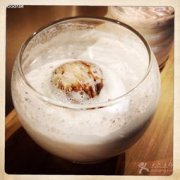Coffee knowledge what is the effect of coffee on the human body
Different people, different constitutions for coffee response is also inconsistent, the human body for food drinks (including coffee) response range is quite wide. There are different conditions at different times, and a few people do suffer from insomnia, nervousness, stomach upset, palpitations and other reactions after drinking one or two cups of coffee. Only about 1% of drinkers experience these reactions, but there is no scientific data available. Some coffee lovers will experience that drinking "too much" coffee can cause the above reaction. "Excess" may mean one cup or more, and for the average person, it means about three cups, and for people who drink coffee regularly, they need more coffee to stimulate them because they already have a higher tolerance for coffee. For non-coffee drinkers, it only took a cup of coffee to stimulate the reaction. Roast coffee now contains chemical components, the impact on the human body have been detailed analysis. Coffee oil, fatty acids and cellulose contained in hot coffee can cause discomfort within hours.

For many people, here are the reasons they believe they need coffee:
1. The mind needs stimulation
Speed up your thinking
3. Improve association
4. Improve memory
5. There will be faster and clearer thinking ability
6. Create a sense of peace
7. Fight insomnia
8. Prevent physical and psychological fatigue
9. Be alert
10, relieve headache phenomenon (even migraine)
11. Make blood flow to the head smoother (dilate blood vessels)
Stimulate the cortical layer of the brain
13. Accelerate the number of breaths/increase the amount of oxygen inhaled
14. Diuresis/defecation
15. Increase blood circulation and raise body temperature
16, increase blood circulation to improve body temperature and respiratory system,
17. Cooperate with sweating to reduce body temperature
18. Reduce arterial self-control and stimulate heart acceleration
Pulse rate is not affected.
20, blood pressure will not increase (due to vasodilation)
21, increase gastric acid secretion to promote digestion (not suitable for gastric ulcer patients)
22. Increase bile secretion and accelerate fat consumption
23. Reduce alcohol and drug discomfort to the human body
Important Notice :
前街咖啡 FrontStreet Coffee has moved to new addredd:
FrontStreet Coffee Address: 315,Donghua East Road,GuangZhou
Tel:020 38364473
- Prev

What's the difference between caffeine and decaffeinated?
The most remarkable thing about caffeine is that the taste of coffee has nothing to do with how much caffeine it contains. Caffeine itself has a slight bitter taste, and its concentration basically comes from the degree of roasting (the deeper it is, the thicker it is). The concentration of coffee is formed by the ratio of coffee to water in the process of brewing. Bullet an ordinary 142g cup of coffee contains 60-180mg (mg) of caffeine, coffee
- Next

Coffee knowledge New Orleans iced coffee making method
Pour coffee powder and 40g of cicory powder into the soup pot. (chicory, roasted and ground, added coffee as flavor additive or substitute for coffee; cooked root can be served with cream, and pictures of chicory (20) leaves can be used as salad. Sometimes used for coloring, thickening and bitterness of coffee (as people in New Orleans often do).) Pour 2.7 liters of ice water into the pot, and then use
Related
- Beginners will see the "Coffee pull flower" guide!
- What is the difference between ice blog purified milk and ordinary milk coffee?
- Why is the Philippines the largest producer of crops in Liberia?
- For coffee extraction, should the fine powder be retained?
- How does extracted espresso fill pressed powder? How much strength does it take to press the powder?
- How to make jasmine cold extract coffee? Is the jasmine + latte good?
- Will this little toy really make the coffee taste better? How does Lily Drip affect coffee extraction?
- Will the action of slapping the filter cup also affect coffee extraction?
- What's the difference between powder-to-water ratio and powder-to-liquid ratio?
- What is the Ethiopian local species? What does it have to do with Heirloom native species?

